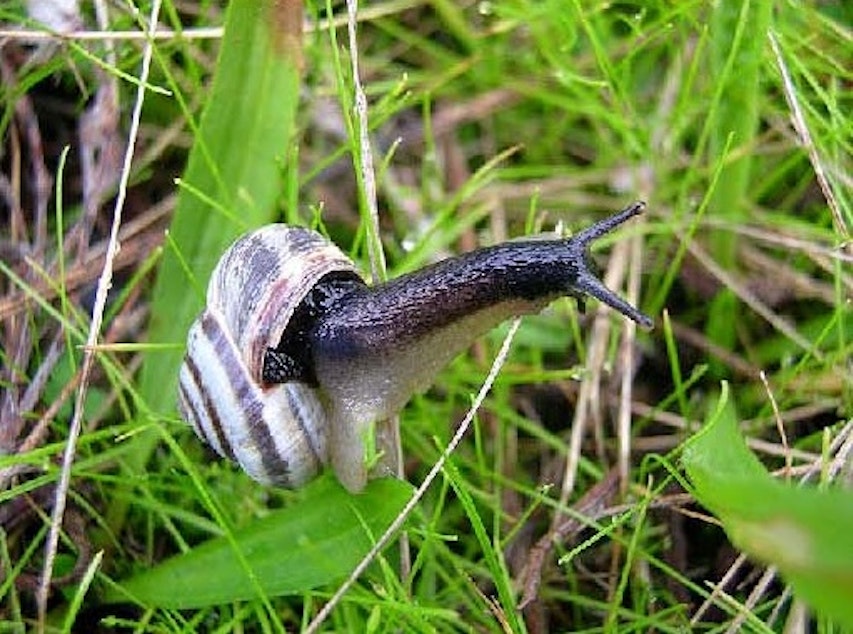Escargot to hell, Port of Tacoma tells invasive snail

The Port of Tacoma has been waging a slow war against (wait for it) a snail for more than a decade.
Somehow, the Mediterranean vineyard snail found its way from Europe to the port.
Since 2006, port and agriculture officials have been trying to make sure this slow-moving but fast-reproducing invader doesn't spread and threaten Washington crops and exports.
I was driving through the Port of Tacoma, past shipping terminals and industry, for another story when I saw a vacant lot with an unusual "no parking" sign.
The words "decontamination required" caught my eye.
So did "snail eradication area."
The lot turns out to be ground zero for efforts to eradicate the European snail that devours wheat and other grains.

"Grain is one of the main exports that comes through the Port of Tacoma,” port biologist Jenn Stebbings said. “So we're heavily invested in making sure that the snails aren't impacting our exports."
The port has used lawn mowers, pressure washers, herbicides and goats to ruin the snail's habitat. Each spring and autumn, workers with sloshing backpacks spray molluscicide – snail bait – to kill the spiral-shelled invaders directly.
U.S. and Washington state agriculture departments called for more drastic action: They encouraged landowners harboring the snails “to pave over vegetated areas wherever possible.”
"There are wetlands located on site,” Stebbings said. “We can't pave the wetlands just because there is a snail there."
Sponsored
But a dozen years of what the port calls "aggressive vegetation management" has knocked the little white and brown snail back to just 16 remaining acres, down from a few hundred.
Any vehicles that do go on the vacant lot have to be decontaminated with salt solution or pressure washed to blast the snails off.
Concern about the snails hitchhiking away from the port and attacking fields of wheat, barley and lentils in eastern Washington has landed them on the state's top-50 most wanted list of invasive species to eradicate or at least control.
There's no evidence a Mediterranean snail has ever escaped the port -- by truck, ship or its own single, slimy foot.
Some 700 invasive species have established themselves in Washington state, according to the Washington Invasive Species Council.
Sponsored
As the port's long, slow snail war suggests, fighting invasive species is seldom easy.
The preferred strategy is usually to prevent them from gaining a foothold in the first place.




